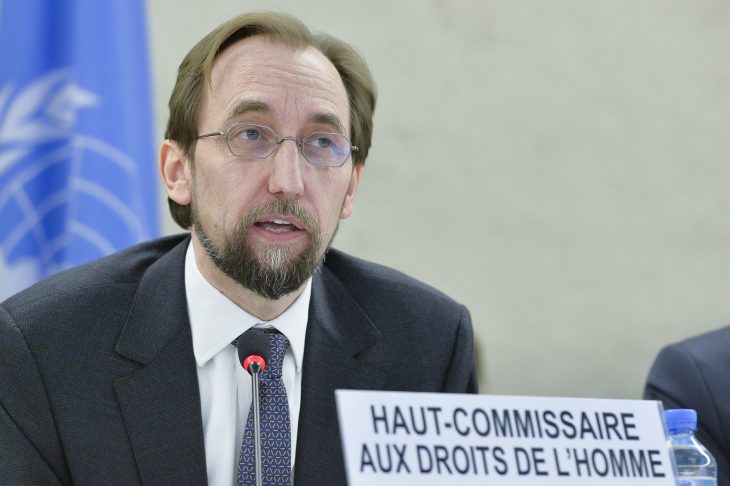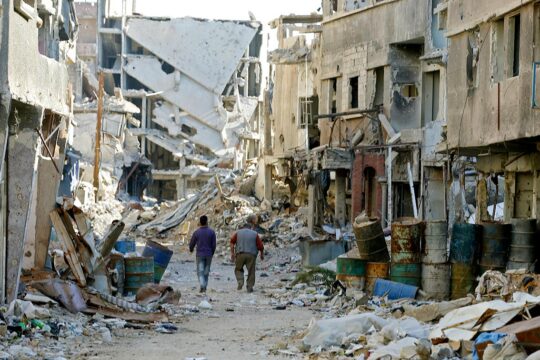The UN rights chief on Tuesday called for action to halt the tragedy unfolding in Syria's Aleppo, and urged the Security Council to introduce a limit on its members' veto power.
"Faced with such a ghastly avalanche of violence and destruction, extraordinary steps must be taken," Zeid Ra'ad Al Hussein said in a statement, condemning the killing of 100 children in 10 days in rebel-held eastern Aleppo.
"The UN Security Council should, without any further delay, adopt criteria to restrain members from using the veto when there are serious concerns that war crimes, crimes against humanity or genocide may have been committed," he said.
Limiting the veto power of the five permanent members of the Security Council, he said, would make it possible to refer the situation in Syria to the International Criminal Court in The Hague.
Previous bids to make such a referral have been vetoed by Russia, a key ally of Syria's President Bashar al-Assad.
Aleppo, once Syria's commercial powerhouse, is now at the heart of a major military campaign by Syrian regime forces and Russia.
The offensive, launched on September 22, has seen hundred of civilians killed and hospitals and residential buildings flattened in the rebel-held east, where an estimated 250,000 people live under government siege.
The battle for Aleppo has sparked some of the most brutal violence since the beginning in March 2011 of Syria's conflict, which has killed more than 300,000 people and displaced over half the population.
Zeid said that an ICC referral "would be more than justified given the rampant and deeply shocking impunity that has characterised the conflict and the magnitude of the crimes that have been committed."
Some of the crimes, he said, "may indeed amount to war crimes and crimes against humanity."
- 'We cannot fail Aleppo' -
Zeid condemned the reported use of incendiary weapons in air strikes by the regime and Russia, and criticised armed opposition groups for using so-called hell cannons -- improvised rockets fitted with gas canisters.
He also condemned the deadly attack on a humanitarian convoy on September 19 and repeated strikes on hospitals in eastern Aleppo.
He compared Aleppo to cities destroyed in World War II.
"Let us not forget that the destruction of cities like Warsaw, Stalingrad and Dresden, and the horror inflicted upon their civilians contributed to a great extent to the foundation of the United Nations," he said.
"We cannot afford to fail Aleppo. We cannot afford to continue to fail the thousands of children trapped in this city awaiting their slaughter."





